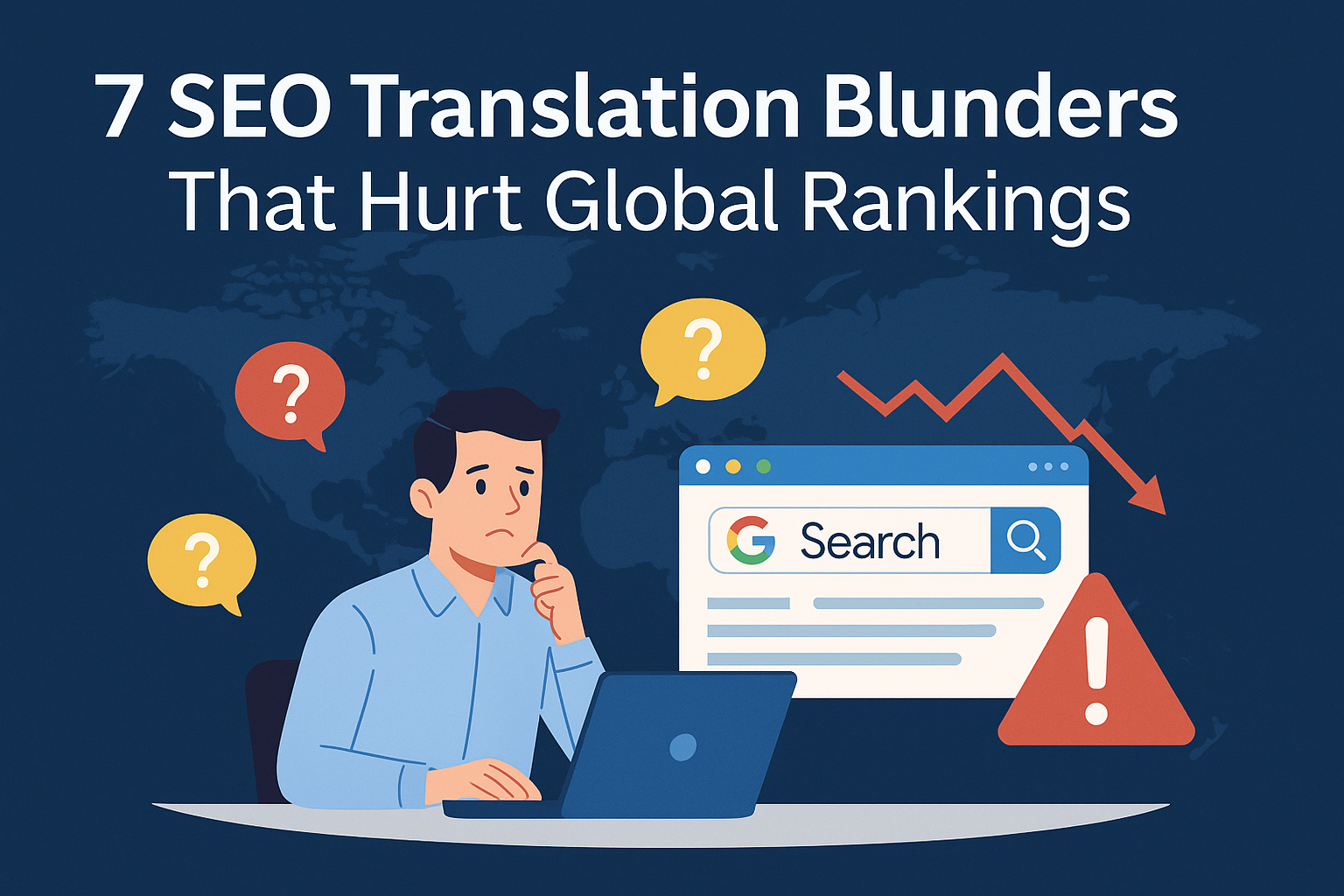Notifications

7 minutes, 19 seconds
-268 Views 0 Comments 0 Likes 0 Reviews

Having a strong online presence is crucial for financial businesses looking to expand internationally. However, a common mistake fintech firms make is assuming that simple word-for-word translation is enough for SEO success. SEO translation is more than just translating content; it involves adapting keywords, meta tags, and website structure to align with the search behaviors of target markets.
For financial institutions, where trust and compliance are critical, accurate SEO translation ensures that potential customers can find your services online while also preserving your brand’s credibility. Let’s explore the key mistakes fintech firms make in SEO translation and how to avoid them.
A major blunder in SEO translation is directly translating keywords from one language to another without conducting localized keyword research. Search terms vary by language and region, and a keyword that performs well in English may not have the same search volume in another language. For example, an English-speaking tourist looking for a hotel might search for “a room with a king-sized bed”, but a French speaker would not search for “une chambre avec un lit à la taille d’unroi” — literally a room with a bed the size of a king. Using a translation that is adapted to your language and region really makes a difference to your search ranking on Google and other search engines.
While Google dominates search in many parts of the world, other countries have their own preferred search engines. In China, Baidu is the leading search engine, while Yandex is dominant in Russia. These search engines have different ranking factors, meaning that SEO translation strategies must be tailored to each platform. A fintech firm entering the Chinese market, for instance, needs to optimize for Baidu’s indexing methods, which prioritize simplified Chinese characters and local backlinks.
Meta titles and descriptions play avital role in SEO translation because they influence click-through rates(CTR) and rankings. Directly translating these elements without considering local search behavior can lead to lower engagement. In some languages, phrases need to be restructured for clarity and appeal. For instance, a concise English meta title may expand significantly in German, potentially exceeding the character limit. Ensuring that meta content is both SEO friendly and linguistically natural improves search visibility.
Cultural differences impact search intent, which is why SEO translation should account for how people search for financial services in different markets. For example, in some countries, users prefer long tail keywords like “What is the best bank for small business loans in France?” whereas others use shorter, transactional queries like “best SME loan France.” Additionally, certain financial terms may carry different connotations, affecting search trends. Adapting to these variations can make or break an international SEO strategy.
Simply translating content without localizing it for cultural and regulatory differences can be disastrous for fintech firms. Financial terminology differs across regions, and using incorrect terms can lead to compliance issues or loss of credibility. For example, in the US, “real estate investment” is a widely understood concept,but in the UK, it is more commonly referred to as “property investment.” SEO translation must ensure that content is not only accurate but also resonates with the target audience.
A well-structured URL is essential for international SEO success. Many fintech firms make the mistake of keeping English URLs for all their translated pages, which confuses search engines and users alike. The best practice for SEO translation is to create country or language specific URLs, such as:
Using the correct URL format improves indexing and enhances user experience.
Hreflang tags help search engines understand which version of a webpage to display based on a user’s language and location. Many fintech companies overlook this step in SEO translation,leading to incorrect page rankings or duplicate content issues. Properly implementing hreflang tags ensures that search engines serve the right content to the right audience, improving both rankings and user satisfaction.
Expanding into global markets requires more than just translating financial content—it demands a strategic SEO translation approach. Fintech firms can enhance their international presence by:
By avoiding these common pitfalls, fintech businesses can improve their search rankings, attract global clients, and build trust in new markets.
For expert SEO translation services tailored to fintech firms, visit Braahmam.net today!
SEO Translation SEO Translation Blunders International SEO International SEO Services SEO Translation Ireland SEO Translation USA

